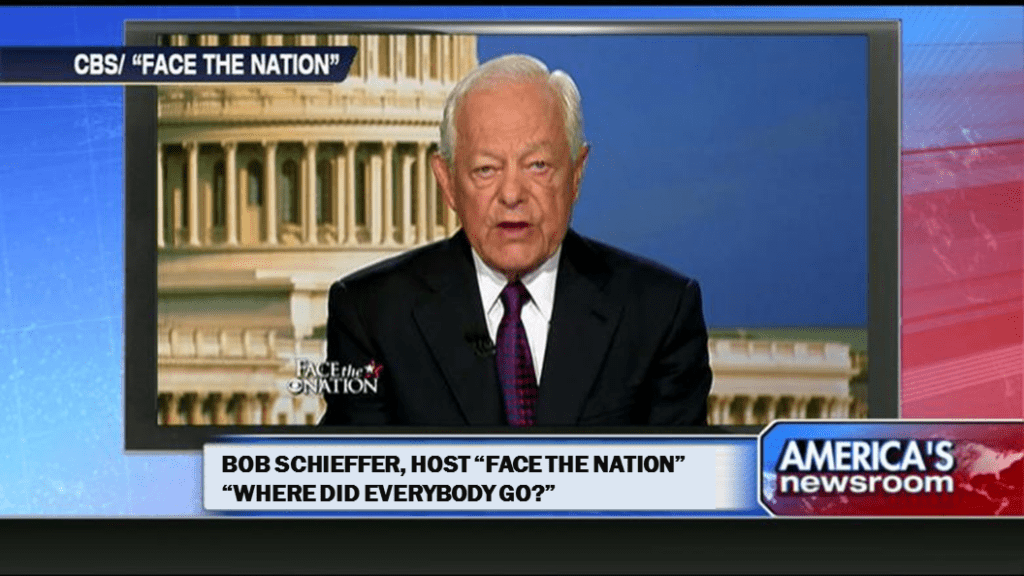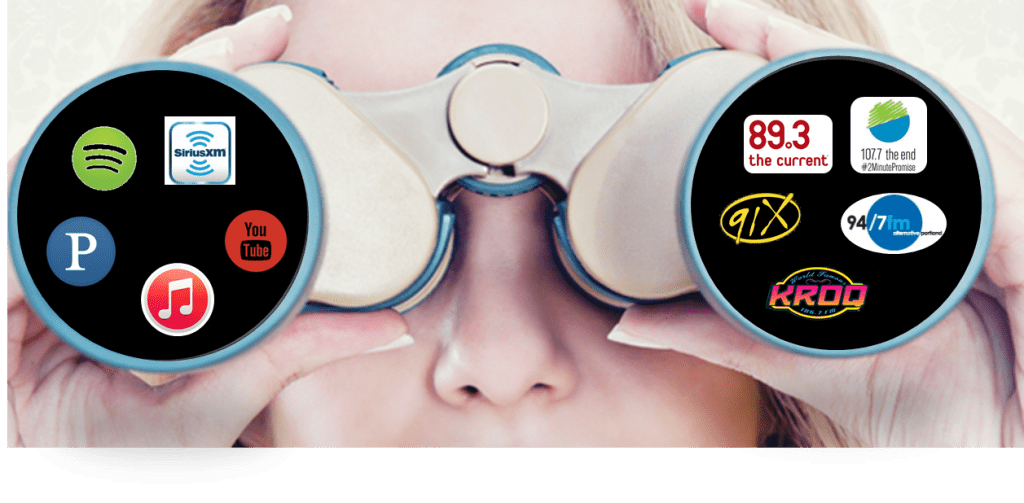I know what you’re thinking – what could the venerable CBS TV anchor have to do with the arts and crafts of new music discovery?
Yesterday was Bob Schieffer’s last day on TV as he wrapped up his final telecast of Face the Nation. That put the wrap on a broadcast journalism career that spanned nearly five decades. Schieffer admits that a lot in the nation’s capital has changed, especially the political climate.
But the other cataclysmic change that Schieffer discussed in a an interview conducted by CBS/DC is in the way that news is communicated to consumers. Here’s his quote:
“We now don’t know where people get their news, but what we do know is they’re bombarded with information 24 hours a day, seven days a week. Most of the information is wrong and some of it is wrong on purpose. It is our job, I think, in mainstream journalism to try to cut through this mall of information and tell people what we think is relevant in what they need to know. That is the job of the journalist and I have to say it’s harder and harder.”
That’s from a guy who became a professional journalist when there were three TV networks and two daily newspapers in most major U.S. cities. Today, the influx of cable news, websites, blogs, chat rooms, social media, and other sources makes it difficult for traditional news organizations to deliver their information to mass audiences, much less remain vital and relevant.
In many ways, Schieffer could be talking about music discovery. We know that especially among fans of Alternative and Triple A, the hunger for finding out about new bands continues to be powerful. These consumers may enjoy hearing the big hits in all genres, but that desire for finding out about what’s around the corner musically is not only exciting, it provides conversation and buzz – two elements that are major cogs of our sharing society. It has always been cool to tell someone about an undiscovered new band, whether at a fraternity party in 1974 or on Facebook or Instagram today.
It is notable that in last Friday’s “Radio’s Most Innovative” post, we showcased Rick Carroll, the father of the Rock of the ‘8os format, which grew up to become Alternative radio. When Carroll was learning about the art of music discovery at the not-yet-world famous KROQ in the late ‘70s, there were no other stations or formats competing for that reputation. In fact, aside from Rolling Stone, most people discovered new music from friends, roommates, and older siblings.
You have to wonder if Carroll was still with us today, he wouldn’t be making some of the same observations as Scheiffer about the overcrowded media noise, and the difficulty of mainstream media – whether CBS-TV or KROQ – fulfilling its legacy mission to help his audience find out about the best new music first.
Today, the ability to learn about new bands and music offerings from around the globe is just a few keyboard taps away. In fact, music discovery has become about as personal as the music itself. We saw in Techsurvey11 – a very radio-centric research study – that Millennials, in particular, are drifting away to other outlets to find out about “the next big thing” in music. YouTube, Pandora, and Facebook are becoming bona fide discovery avenues:
Whether you’re a TV news team or the program director of an Alternative station, you have to get your head around the reality that the information and music delivery systems have forever changed. Consumer tastes are scattered over an Internet that knows no bounds.
So what is it about your music discovery experience that creates something different and unique, while leveraging your station’s reach?
That’s the question that every music programmer should be asking themselves because the dilemma reaches beyond new music discovery. It impacts every station that places its bets on a music product, whether it’s Country, Classic Rock, or Hip-Hop. How can stations add to the experience of enjoying mass appeal favorite songs – along with the ones they haven’t heard yet?
How can stations better utilize all the tools at their disposal – local music, blogs, podcasts, station videos, and of course, the knowledge, local roots, and personalities of their DJs? This is part of the arsenal that many stations have but just haven’t found a way to pull together.
This week, we’re going to announce a new hire at Jacobs Media – someone who can help stations connect those dots using content marketing and the resources in every station’s tool kit. That’s the big need at radio stations whether they’re in L.A. or Lansing.
For Bob Schieffer, best wishes on a well-deserved retirement. For the rest of us with a lot of gas still left in the tank, it’s time to redefine what it means to deliver on that traditional music promise by giving consumers new music experiences they won’t get anywhere else.
That’s what we need to discover.
Note: The original version of this post contained the new music discovery chart that did not include Sirius/XM. Reader Chris Corley brought this to our attention & the corrected chart appears above. -FJ
- What To Do If Your Radio Station Goes Through A Midlife Crisis - April 25, 2025
- A 2020 Lesson?It Could All Be Gone In A Flash - April 24, 2025
- How AI Can Give Radio Personalities More…PERSONALITY - April 23, 2025







Maybe the big takeaway from this is that #OldMedia giants were not doing a good-enough job at giving their audiences what was desired?
Dimitri, I think that’s right and also that they continued to assume that the legacy networks would continue to dominate even in an Internet world. In radio, we continue to hear focus and listener advisory board groups mock stations that continue to sell albums and songs as “new” when they’ve been out for months. Like so many other content issues, it is essential that brands reassess their practices as the digital options intensify. Thanks for chiming in.
Great story…would love to talk to you about your new hire Fred! Our social media marketing company is going to have a whole division around new music discovery. We should talk! Check out https://socialfans.tv/ look forward to connecting Fred!
Brian, that’s a deal. We’ll be in touch. Thanks for the kind words.
Fred, this applies more to Top 40/CHR than other radio formats, but I would ask how much of this ties into the fact that Top 40 stations don’t have night jocks anymore. That was traditionally the gateway for younger listeners. Night jocks bonded with those teens. They were the pied pipers. With corporate ownership, budget cuts, the economy tanking, whatever the reason, radio forfeited that audience.
That’s all part of it. As assets are removed brick by brick, it becomes more challenging to have an impact up against new media outlets. Another reason why it’s time to reassess how radio defines & presents assets like new music discovery. Thanks for the comment.